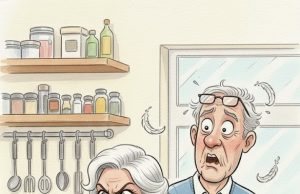
Lemon juice is highly effective in cleaning a variety of items, particularly adept at addressing challenging stains caused by a combination of sunscreen and effectively removing lingering odors from cutting boards that have absorbed strong smells from ingredients such as onions and garlic.
However, it is important to note that lemon juice should not be applied to every surface or fabric. Crucially, it must never be combined with chlorine bleach or products containing bleach, as this mixture produces harmful toxic fumes.
To prevent expensive harm or more severe consequences, it’s crucial to be aware that numerous common household items should not be cleaned with or exposed to lemon. Some of these may surprise you, so read on to find out what you should never clean with lemon.
1. Bleach

Combining chlorine bleach with acids triggers a chemical reaction, producing toxic chlorine gas. The caution against mixing bleach with vinegar applies equally to lemon juice. It is absolutely imperative never to blend chlorine bleach or any bleach-containing products with lemon juice, under any circumstances.
Warning: Never mix lemon with chlorine bleach or products that contain bleach.
2. Natural Stone
Lemon juice should be kept away from natural stone surfaces such as countertops, backsplashes, floors, furniture, and accessories. The acidic nature of lemon juice can lead to the development of pits in materials like marble, granite, slate, and other natural stones.
3. Hardwood Floors
The application of lemon juice on hardwood flooring can harm the protective seal, resulting in a lackluster appearance and increased vulnerability to damage. Refrain from using lemon for cleaning hardwood floors, and in case of any lemon spills or drops, promptly clean them up to minimize the duration of the seal’s exposure to citric acid.
4. Brass Plating
Cleaning with lemon can be a bit tricky, especially with this item. While solid brass can be polished using lemon or other acidic cleaning agents, it’s crucial to avoid using lemon juice on brass-plated items, as it can lead to corrosion. To distinguish between solid brass and brass plate, you can perform a magnet test: Place a magnet against the item—if there’s no attraction, it’s solid brass. However, if you feel a magnetic pull, the piece is brass-plated, and you should refrain from using lemon juice on it.
5. Dark or Brightly Colored Clothing
Lemon juice may cause a bleaching effect on dark and brightly colored clothing and textiles, resulting in permanent color loss. It’s advisable to refrain from directly squeezing lemon juice onto dark or vibrant clothing, household items, and upholstery. Instead, consult our guide on removing common fabric stains for a more suitable approach.




















